











Over the last two years our community and our police officers have certainly experienced our share of personal and professional challenges. 2021 provided significant challenges for our department. The impacts of the COVID-19 pandemic; the loss of trust between the police and the communities we serve after the murder of George Floyd; the tragic death of Daunte Wright; the civil unrest that followed these incidents in Minneapolis and Brooklyn Center; the Derek Chauvin and the Kim Potter trials; police department staffing challenges; calls for police reform and the increase in violent crime in our region were just a few of the challenges we encountered. I know all of these challenges have placed incredible demands on all of us personally and professionally. I am proud to say that through it all our officers have continued to provide outstanding professional service to our community, because that is who they are and what they stand for.
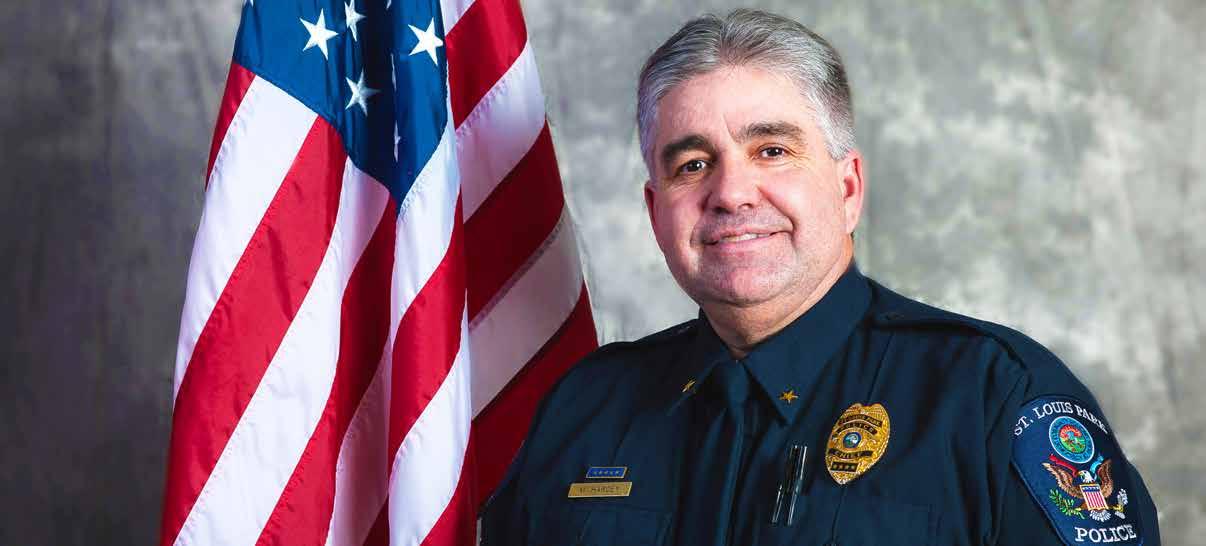
When I accepted this position five years ago, I shared with the community my thoughts on the culture of our department and defining our success. Many things contribute to the culture of an organization, but the people that represent the organization are the most important factor. Recruiting, hiring, developing and investing in the people that reflect the values of the community we serve is what has made our department successful. Developing a culture of service above self, treating everyone with respect and dignity, diversifying our workforce to reflect the community we serve and taking care of ourselves and each other is what has made us successful.
The Merriam-Webster dictionary defines resiliency as the “ability to recover from or adjust easily to adversity or change.” I think it is safe to say we have experienced some adversity over the last two years. I know and have seen firsthand how resilient our staff has been through this time. But I am proud to say, because of the dedicated work of our staff, the department entered the last two years prepared, strong and healthy,
which has assisted us in continuing to provide outstanding professional service to the community. The work that our staff does every day to serve the community will continue to keep our department and our community strong, resilient and successful into the future.
Our staff takes great pride in serving and engaging our community to make St. Louis Park a great place to live, work and visit. We are grateful for the ongoing support and partnerships with our elected officials, city leadership and the community.
It is truly an honor and privilege for me to able to serve alongside the professional and dedicated staff of the St. Louis Park Police Department. I thank our officers, dispatchers, community service officers and support staff for their outstanding work in 2021.
I would like to thank our officers, dispatchers, community service officers and support staff for their work providing dedicated and professional service to the community.
The multiagency Pathways to Policing program is designed to address a drop in the number of police officer applicants and to attract candidates of color, women and others with nontraditional backgrounds. The program focuses on candidates with college degrees who are interested in a career in law enforcement but don’t have the means or ability to attend a law enforcement academic program while continuing their current careers. In 2019, the Pathways to Policing program received an excellence award for community diversity and inclusion from the International City/County Management Association (ICMA).

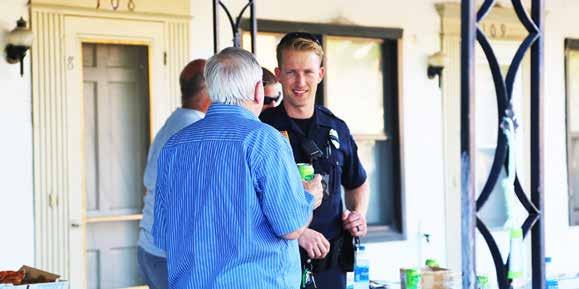
The chaplaincy program includes five volunteer chaplains who are available as professional, nondenominational resources to provide confidential spiritual guidance and counseling for department staff, their families and the community. The St. Louis Park chaplains donate hundreds of hours of their time to our community every year.




Over the course of two events in spring and fall, 486 pounds of prescription drugs were collected as part of National Prescription Drug Take Back Day. The quantity of unused and expired medications collected at these events continues to increase every year.
As part of Hennepin County’s coordinated medicine disposal program, a medicine drop box is available in the police department lobby 24 hours a day, seven days a week for collection of household medicines. In 2021, 860 pounds of medications were collected in the lobby drop box. Acceptable items include prescription, over-the-counter and pet medicines. Medicines should be brought in their original containers. No identification is required, and the service is free. Visit www.hennepin.us/medicine for a complete list of accepted medicines.

To provide district police officers with resources in the neighborhoods they serve, the police department operates several substations (COP Shops) throughout the city. COP Shops are equipped with all the necessary resources for officers to write reports, meet with community members and maintain a presence in the neighborhoods. COP Shops are located at:
•
The mission of the St. Louis Park Police Department is to provide a safe community through quality service, community partnerships and professionalism.
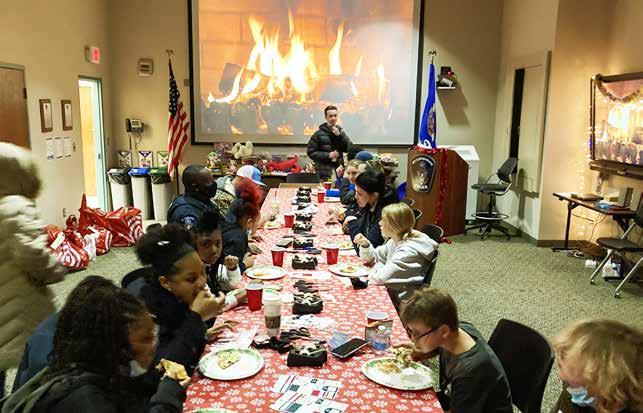
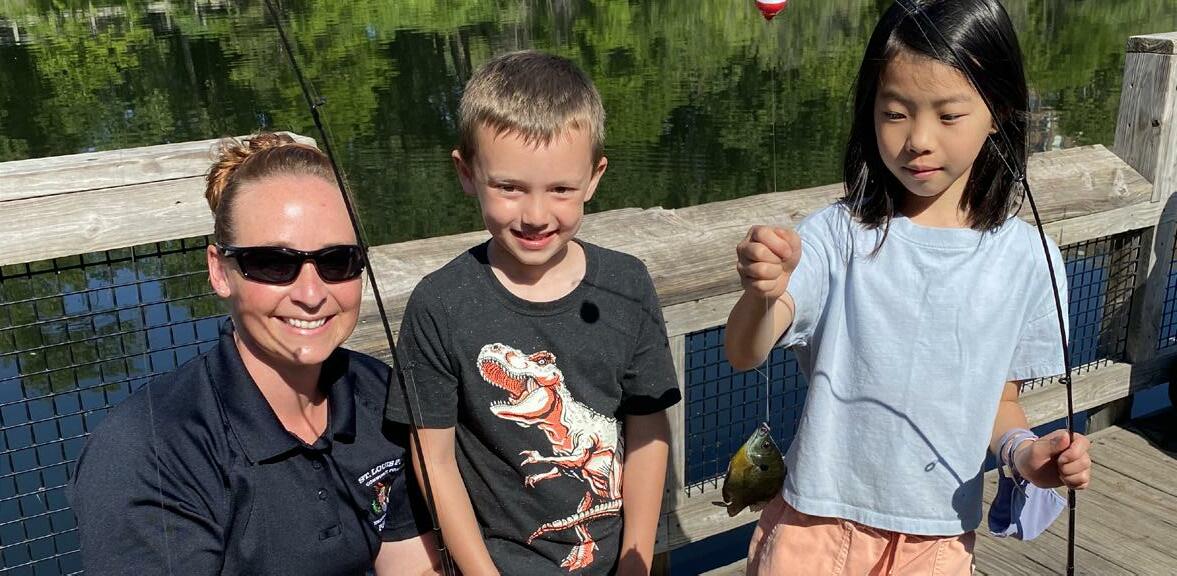

The department’s operating philosophy includes:
• Committing to community-oriented policing
• Delivering effective and efficient services

• Providing a positive work environment for employees
Through its mission and philosophy, the police department seeks to support the city’s overall mission of providing collaborative, quality and responsive services to residents.
Three police officers are assigned as school resource officers during the school year, serving as resources for students, teachers and school administrators. One officer is assigned to St. Louis Park High School and another to St. Louis Park Middle School. St. Louis Park elementary schools are serviced by the community and youth outreach officer on an as-needed basis. Another officer works closely with students and staff at Groves Academy, Benilde-St. Margaret’s, Torah Academy and others.
The police multicultural advisory committee (PMAC) was created in July 2015 with the mission of enhancing communication and understanding between law enforcement and the community and to create an inclusive environment for all. This year, members engaged in strategic planning sessions to ensure ongoing development of the committee. In addition to attending regular monthly meetings, members participate in outreach events and police department training. Members are currently developing a PMAC driven question to be asked in future interviews with new officer candidates. (see letter from the chief).
The police advisory commission’s goals are to:
• Increase awareness of police department capabilities and services
• Provide an opportunity for community involvement and input in police services
• Encourage positive interactions between the police department and the community
The work of the commission changes as the needs of the community change.
The community outreach team offers winter and spring school break programs that focus on at-risk youth in the community who have uncertain home and life schedules during long school breaks. These programs are filled with fun events for both the youth and officers, including ice skating, snow tubing, trampoline parks, skateboarding, virtual reality and more. Along with the fun are educational visits to museums and manufacturing facilities, such as a soda bottling company and a U.S. Bank Stadium tour. The program also includes a community give back event, with activities such as picking up trash from the skate park and packing food boxes (provided by St. Louis Park-based Matter) to serve the homeless.
• Cops and Kids Holiday Shopping continued this year, with officers shopping with middle school students for gifts for their families, then helping them wrap the gifts. A gift card was included to help buy a holiday meal. Thank you to Cub Foods and Target for their support.
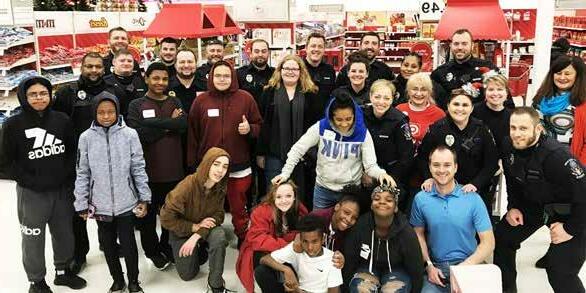
• Get Out and Sled takes place in February, with officers visiting local sledding hills to encourage youth to get outside. Participants send in photos of themselves sledding for a chance to win a prize package.
• Skateapalooza, held at the Carpenter Park skate park, helps build trust between officers and the community and introduces kids to skateboarding.
• Fishing with a Cop in Wolfe Park attracts hundreds of community youth over its three sessions in the spring and summer.
• Basketball in the Park has partnered with Perspectives, Inc. to host this program at Ainsworth Park for more than a decade.
• Jobs in the Park educates at-risk teens about job opportunities with the city, including how to search, apply and interview for jobs. The program is a collaboration of St. Louis Park Public Schools, the City of St. Louis Park and Methodist Hospital.
The Citizens’ Police Academy educates community members about the police department’s work. This annual fall program is open to all adults who live or work in St. Louis Park.
In November, the St. Louis Park Police Department, in partnership with St. Louis Park Emergency Program (STEP), collected more than 100 coats and 400 pounds of food for St. Louis Park residents.
In December, the St. Louis Park Police Department partnered with AAA of Minneapolis and Nelson’s to collect donations for the Toys for Tots drive.

Vitals™ Aware Services provides first responders with crucial information about vulnerable individuals, increasing the effectiveness of situational response and vastly expanding the potential for successful and safe resolutions.
To help prevent catalytic converter thefts, the police and city operations and recreation departments sponsored three marking events, marking about 250 catalytic converters.
In 2019, the St. Louis Park Police Department joined the Pink Patch Project, selling collectible uniform patches in October to help bring awareness and an end to breast cancer. In 2021, pink pint glasses and challenge coins were added for purchase, raising $1,800. Proceeds went to the American Cancer Society and to a St. Louis Park police officer whose family was affected by a breast cancer diagnosis.
For some families, a broken turn signal or taillight means choosing between paying for the repair and family expenses. This program allows officers to issue a voucher for a free repair to a driver of a vehicle with broken lights.
Police officers are more likely than any other emergency responders to encounter a community member experiencing a mental health crisis. Since 2019, the St. Louis Park Police Department has partnered with Hennepin County Behavioral Health and the Hopkins Police Department to bring a senior social worker into the police department and out in the community alongside officers. Following a short-term case management model, the social worker partner receives referrals from officers and establishes connections between people in crisis and the services they need. This is aimed at reducing repeated interactions, preventing unnecessary arrests and guarding against uses of force.
In 2021, 397 referrals were made to help community members access help and care, a significant increase from 2020. In addition, the police department’s multidisciplinary mental health workgroup provided input on new department policies for mental health emergencies, civil commitments and officer wellness.
Neighborhood Watch is a voluntary program that teaches simple and proven crime prevention techniques and builds relationships between neighbors and the police department. Block captains help maintain the safety and well-being of their neighborhood by coordinating Neighborhood Watch activities for their block. To see if your block is organized and has a block captain, view the neighborhood watch block captain interactive map at bit.ly/SLPPDvolunteer.

The Public Safety Answering Point (PSAP), or dispatch center, is staffed by eight full-time dispatchers and five part-time dispatchers. The dispatchers use Computer Aided Dispatch (CAD) in conjunction with an integrated E911 system to process calls for service and manage information critical to responding police, fire and medical units. Calls for service are also sent electronically to responding police officers through a mobile computer (MCD) system. Each year, the dispatch center handles more than 26,000 calls to 911, and about 35,000 additional non-emergency calls.
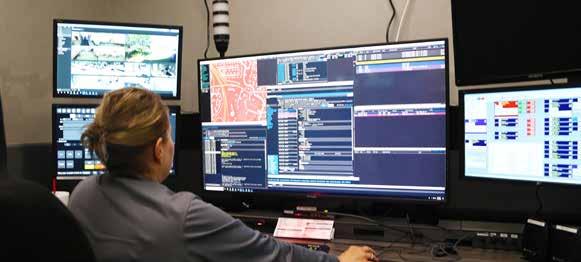

Response to resistance reports are required when force is used that is greater than routine handcuffing. In 2021, of the 51,620 calls for service, force was used or displayed 183 times or 0.35% of the total calls for service.
The patrol division includes six sergeants and 29 patrol officers who work a combination of 10-, 11- and 12-hour shifts. The shifts overlap to provide more comprehensive coverage during shift changes and extra resources during peak periods of activity. This schedule also allows officers time to engage the community in addressing crime and other issues that affect quality of life.
In 2021, 13 officers and one reserve officer participated in the St. Louis Park Police Department’s bike patrol unit. They provided more than 250 hours of nontraditional patrol for the city. Between June and September, these officers can be seen on bikes out in the community. In addition to riding as much as possible during their regularly scheduled shifts, bike patrol unit officers participated in many outreach initiatives and made numerous positive citizen contacts throughout the summer. The police department’s bike patrol unit is highly valued by the police department, city administration and the community.
The police officer field training program combines adult learning theory and problem-solving tools, which encourages new officers to use a proactive mindset to identify and solve problems in communities. In 2021, seven new officers participated in field training, which included 480 hours in a squad car and at least 80 hours of initial orientation and basic training, along with eight hours of firearms and 16 hours of response to resistance training. Each new officer receives about 700 hours of field training.
In 2021, the crisis negotiations team included two sergeants, five officers and one dispatcher. All team members receive an initial 40 hours of basic crisis negotiator training, which involves working with negotiators from around the metro area. Professional actors play the roles of those in crisis. Team members learn to use the equipment and tactics necessary to de-escalate someone in crisis. Team members typically attend an advanced 40-hour course after they have been on the team for a year or two.

In addition to the initial training, team members train a minimum of four times a year as a team and with consortium partners. During the 32 hours of training, the St. Louis Park team works closely with teams from Eden Prairie, Edina and Minnetonka. The trainings involve scenarios, speakers and often members of the community who have experienced a crisis and a police response. A typical member with two years of experience on the team has received more than 100 hours of specialized training. The team will train up to an additional 40 hours a year.
In 2021, crisis negotiators helped the SWAT team with callouts, frequently serving the role of being prepared to communicate with concerned residents while SWAT conducted operations.
The purpose of crisis negotiators is to ensure the team is immediately prepared to establish crisis communications if a subject becomes barricaded or is actively resisting the efforts of the SWAT team. They are also there to calm and inform neighbors and others the purpose of the police action and what to expect.
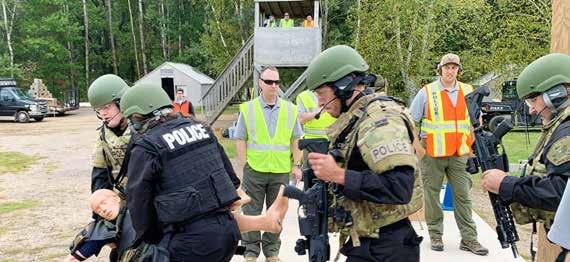
The St. Louis Park Police Department SWAT team includes two sergeants, 11 officers and two St. Louis Park firefighters who are trained as tactical medics. Officers interested in joining SWAT must have a minimum of two years of experience, demonstrate shooting proficiency and physical agility, and be interviewed by SWAT team supervisors. St. Louis Park SWAT officers take this assignment over and above their daily duties and are required to train at least 10 hours a month. Positions on the SWAT team help officers build experience and gain leadership skills.
All team members receive an initial 40 hours of specialized tactical training at Southwest Metro Basic SWAT School, a consortium of SWAT teams from Eden Prairie, Edina, Hopkins, Minnetonka and St. Louis Park police departments. Six months of training dates are exclusively St. Louis Park SWAT, and the other six months are consortium training with the Southwest Metro SWAT. The St. Louis Park SWAT team participates yearly in a SWAT training conference at Camp Ripley in northern Minnesota. Additionally, selected team members, on a rotational basis, participate in a yearly conference hosted by the Special Operations Training Association in Duluth, MN.

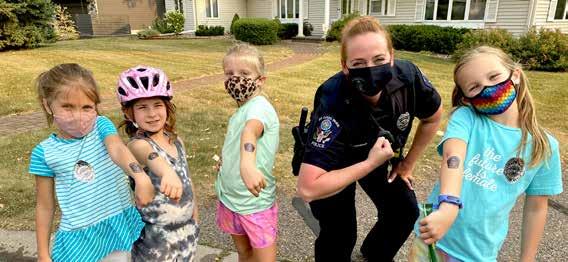
The St. Louis Park Police Department participates in the Southwest Hennepin Drug Task Force, which includes officers from Eden Prairie, Edina, Hopkins, Minnetonka, St. Louis Park and the Hennepin County Sheriff’s Office. The task force works together to conduct undercover operations and drug enforcement. One St. Louis Park police officer is assigned full time to the task force. Other officers may assist with task force activities during their off-duty time or as assigned.
Community service officers (CSOs) provide support services, such as maintaining police equipment, issuing citations for non-moving violations, monitoring the jail and giving tours to visitor groups. The department has one full-time CSO coordinator and four part-time CSOs. The CSO coordinator is responsible for training, evaluating and coordinating CSO activities. CSOs are hired on a temporary, part-time basis and must be attending an accredited post-secondary law enforcement program while employed, with the intent to become a licensed police officer.
The records division collects, processes, distributes and maintains all St. Louis Park Police Department records, in accordance with federal and state data practice laws and records retention requirements. It also provides support for the city attorney and the Minnesota State Patrol.

2021 officer of the year
St. Louis Park Police Officer Allison Jones has been named St. Louis Park Police Department 2021 Robert Linnell Officer of the Year.
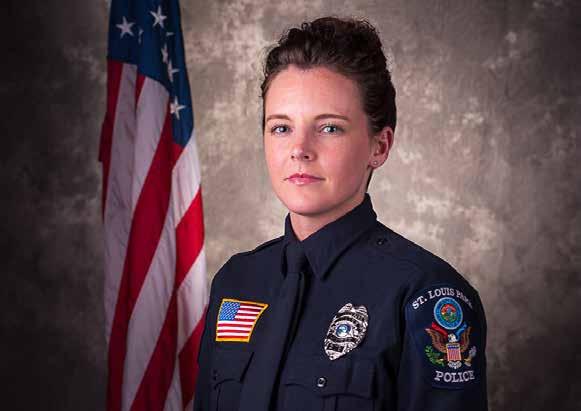
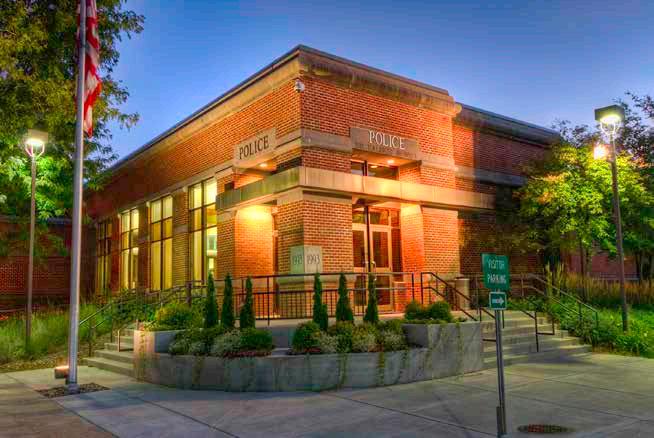
The police department presents this award annually to the officer who has demonstrated consistent principles of integrity, fairness and a commitment to service within the community. The officer of the year is an example of what a police officer should be or strive to be by demonstrating their commitment to the mission and values of the police department and the City of St. Louis Park. Officers are selected by their peers in the St. Louis Park Police Department.
Those who nominated Jones for the award cited her selflessness, empathy and strength of character, as well as her dedication and commitment to serving the community. Officer Jones is described as an exceptional officer and a shining example of the department’s guiding morals and values. In 2021, Officer Jones worked as an investigator for the police department where she took on some of the most difficult and sensitive case assignments. She is currently serving in the patrol division.
The reserves unit includes nine volunteers ranging in age from 20 to over 70. Although their involvement was limited in 2021, they still volunteered more than 550 hours helping with night patrols and city events.
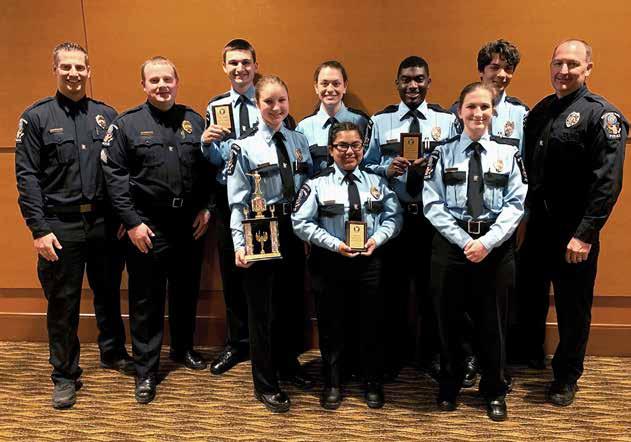
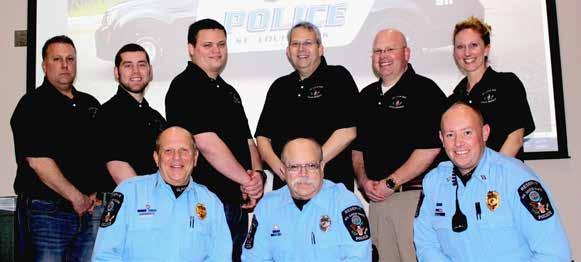

The St. Louis Park Police Explorers Post #3505 is one of the longest-running law enforcement explorer posts in the nation. The volunteer program offers youth ages 14 to 21 a chance to learn firsthand the duties and responsibilities of police officers. Explorers meet every Tuesday evening to participate in role playing, class study and social exercises related to a career in law enforcement. Explorers also volunteer at local community events with police officers.
Explorers apply the information they’ve learned by participating in competitions and mock scenarios at the annual Minnesota Law Enforcement Conference. National conferences are held every other year. Fundraising covers much of the training, equipment, competition and travel expenses; some additional costs are associated with competitions in other cities or states.